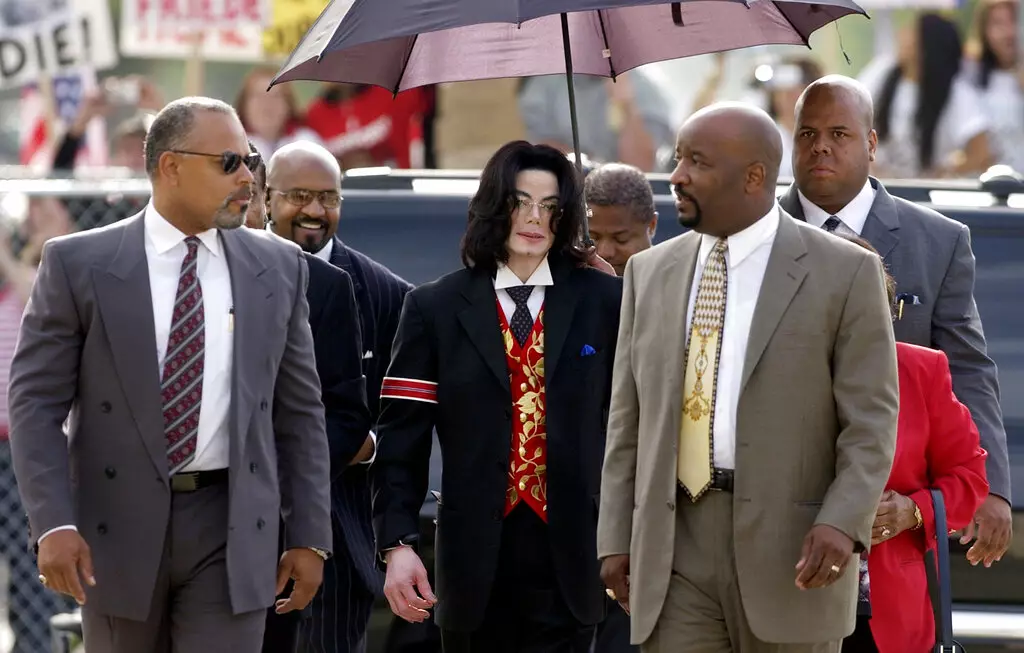The public perception of celebrities often swings dramatically based on media portrayal and public narratives. As the world has witnessed, Michael Jackson, the King of Pop, is one figure whose life was marked by moments of overwhelming adoration and intense scrutiny. Channel 4’s forthcoming documentary series, tentatively titled “The Trial of Michael Jackson,” as produced by Wonderhood Studios, aims to create an intricate tapestry that weaves together his illustrious career, his relationship with the media, and the infamous 2005 trial which centered around allegations of child molestation.
This series is set against the backdrop of a complex relationship between Jackson and the media, revealing not just the allegations but also the sensationalism that often accompanies stories related to high-profile figures. Jackson’s trial was a pivotal moment in both his life and the cultural discourse surrounding celebrity accountability, and this documentary is intended to revisit those discussions. It raises significant questions about how justice is portrayed in the media and its repercussions on the individuals involved.
In 2005, Michael Jackson was acquitted of all charges brought against him after a highly publicized trial where 13-year-old Gavin Arvizo alleged molestation. However, years later, additional allegations were brought to light in the Channel 4 documentary “Leaving Neverland,” which presented testimonies from two men who claimed they were also abused as children. This documentary was met with mixed reactions, serving as a powerful catalyst in the ongoing debate about Jackson’s legacy. The juxtaposition between Jackson’s triumphs in the music industry and the dark allegations that marred his reputation illustrates the duality of celebrity culture.
The new series aims to encourage a nuanced discussion about Jackson’s life, encompassing both his artistic contributions and the serious allegations that have tainted public perception. The inclusion of contributors who have not previously shared their insights about the trial presents a refreshing opportunity to gain new perspectives and potentially shed further light on the case that has haunted Jackson’s legacy.
In recent years, the film and television industry has been pushed to evolve in the wake of a social reckoning; the #MeToo movement highlighted the importance of safe working environments, particularly during scenes of intimacy. The British Entertainment and Cinematograph Technicians Union (Bectu) has made steps toward ensuring these reforms by launching the first official registry for intimacy coordinators in the UK and Ireland. This initiative signifies a growing recognition of the need for specialized support during production, particularly in scenes involving intimate content.
Philippa Childs, head of Bectu, articulated the necessity of intimacy coordinators in providing critical support for actors, contributing positively to the portrayal of intimate scenes on screen. This shift exemplifies how the industry is adapting to societal changes and embracing new standards that prioritize artist welfare, ensuring production not only respects them but empowers them through the creative process.
As Channel 4 prepares to spotlight the life of Michael Jackson and his complex relationship with fame, the BBC is simultaneously broadening the landscape of television with innovative concepts such as “An t-Eilean” (The Island), a high-end Gaelic drama scheduled for early 2025. This series is noted as the BBC’s most expensive Gaelic production and combines English and Gaelic dialogue, reflecting a growing commitment to showcasing regional and cultural storytelling.
Starring renowned actors like Sagar Radia and Sorcha Groundsell, the drama not only aims to entertain but also to elevate the cultural narrative of the western Isles of Scotland. By incorporating Gaelic, the production seeks to enhance visibility for underrepresented languages in mainstream media, potentially paving the way for more diverse narratives to grace our screens in the future.
The forthcoming documentary on Michael Jackson’s trial and the establishment of intimacy coordinators represent key moments of reflection and reform within the media landscape. These developments underscore the evolving nature of storytelling in television, where complex legacies and sensitive content coexist, necessitating thoughtful approaches to both depict and protect.

